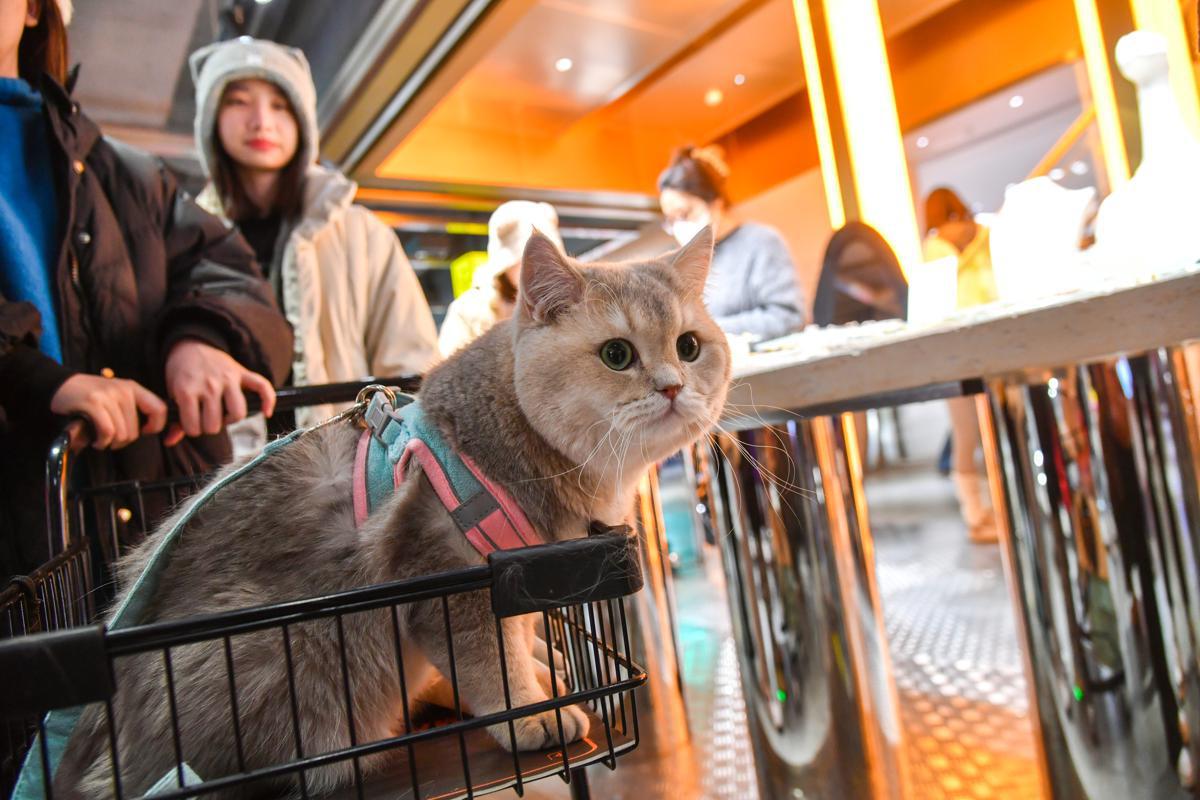When it comes to popularity, cats get the upper paw


"My cats are incredibly smart, understanding things just like humans do," said Ma Li, owner of two cats aged 13 and 16 in Beijing.
"Once, when I was criticizing my daughter, they stood between us, trying to de-escalate the conflict," Ma said.
Ma adopted her first black-and-white cat 16 years ago when she moved into her apartment at the age of 23.
"Every time I returned home after work, it would wait at the door to welcome me, easing my work pressure and making me feel wanted," she said.
It didn't take her long to make the decision to have her second cat, a yellow-and-white variety.
Though both cats are typical domesticated felines, their personalities vary, with the first being affectionate and the second being more reserved, she said. Despite not being rare breeds, she expressed her affection for them and showed her readiness to spend money on them.
"I have a weakness for whatever benefits cats, and find myself even more generous with them than I am with myself," Ma said, while carrying four huge bags of pet supplies, including litter, food and toys.
Confronted with heavy work pressure and isolation in an unfamiliar urban environment, Ma is one of those who find solace in raising pets, especially cats — a frequent phenomenon which has created a surge in house cat ownership in recent years.
Liu Lang, deputy head of the Chinese Veterinary Medical Association, confirmed the trend, saying that people born in the 1980s and 1990s may prefer cats to dogs due to the former's lower maintenance.
"The necessity of walking dogs discourages many urban dwellers, especially young and middle-aged individuals with demanding work schedules. Nevertheless, those with heavy workloads are prone to seek companionship. In this context, cats emerge as a preferable choice because of their lower need for space to roam and less frequent bathing requirements," Liu said.
In recent years, the number of pet cats has gradually exceeded that of pet dogs. According to Petdata.cn, a pet industry market observer, the number of pet cats in China reached 69.8 million last year, a 6.8 percent year-on-year increase, surpassing the number of pet dogs by 18.05 million.
Zhang Haiqiang, secretary-general of the China Small Animal Protection Association, attributed the difference to the pets' living habits, as "the emotional value brought by raising cats and dogs is almost the same".
Chen Haoxing, who owns three cats and a dog, said he finds potential pet owners can have more options when it comes to raising cats, as restrictions on raising dogs are tightening due to recent well-publicized biting incidents.
Chen also mentioned the availability of hairless cats provides an option for those who are allergic to animal fur.
Some individuals discover the uniqueness of a cat's personality and find it fascinating.
"I thought myself of a dog enthusiast because my family once had a wonderful dog when I was a kid. However, after three years with my first cat, I think I'm more of a cat fan," said a pet owner surnamed Li.
Li's black-and-white cat is named Wuqian, or five thousand, as it incurred a 5,000 yuan ($691) expenditure for a half-month stay at the vet due to a health issue after being picked as a stray in the neighborhood.
"Although Wuqian is not overly affectionate, I can sense the feelings between us. In the mornings, Wuqian comes over to snuggle for a while after I wake up, with its tail forming a hooked shape to express contentment. I appreciate this way of bonding, and I feel like I'm the more dependent one in the relationship. My cat has also taught me the importance of learning to say no and establishing boundaries in social interactions," she said.
Li found that most pet owners in her social circle raise dogs and cats — or just cats — citing "the captivating individuality of cats" as the reason.
"Being an avid animal lover, I'm open to the idea of raising dogs," she said. "But I prefer breeds with stable temperaments, such as Labs and Golden Retrievers, rather than breeds like Huskies and Poodles."





































